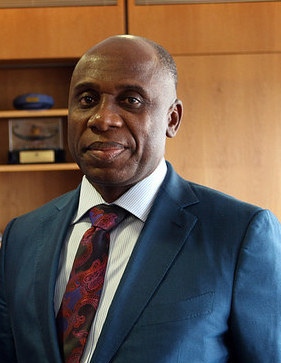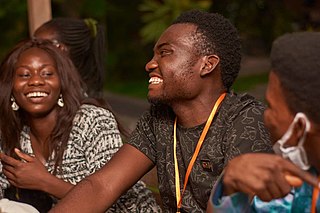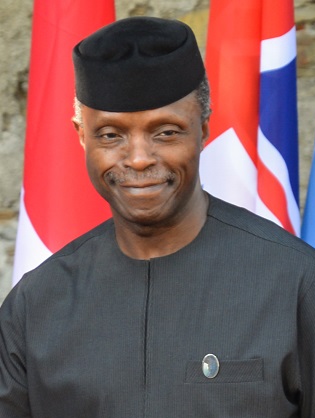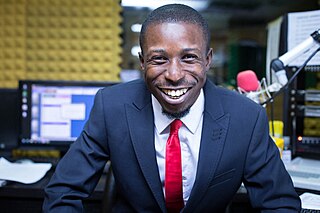
The Peoples Democratic Party (PDP) is one of the two major contemporary political parties in Nigeria, along with its main rival, the All Progressives Congress (APC).

Elections in Nigeria involve choosing representatives for the federal government of Nigeria as well as the various states in the Fourth Nigerian Republic. Elections in Nigeria began in 1959 with several political parties. It's a method of choosing leaders for which the citizens have the right to vote and to be voted for. In 2023, Nigerians were getting ready for presidential elections with about 93.4 million eligible voters across the federation. Elections in Nigeria are held in all tiers of the government. The presidential election, the national assembly elections, the governorship elections and the local government elections.

The National Assembly of the Federal Republic of Nigeria is a bicameral legislature established under section 4 of the Nigerian Constitution. It consists of a Senate with 109 members and a House of Representatives with 360. The body, modeled after the federal Congress of the United States, is supposed to guarantee equal representation with three senators to each of the 36 states irrespective of size in the Senate plus one senator representing the Federal Capital Territory and single-member district, plurality voting in the House of Representatives. The National Assembly, like many other organs of the Nigerian federal government is based in Abuja in the Federal Capital Territory.
George Akume ; born 27 December 1953) is a Nigerian politician who is the 21st and current Secretary to the Government of the Federation. He served as Minister of Special Duties and Inter-Governmental Affairs from 2019 to 2023, during the administration of President Muhammadu Buhari. He was the Senator representing Benue North-West Senatorial District between 2007 and 2019. He was also the Minority Leader of the Senate from June 2011 to June 2015. He served as the Governor of Benue State from May 1999 to May 2007.

Abubakar Bukola SarakiMBBS is a Nigerian politician who served as the 13th president of the Nigerian Senate from 2015 to 2019. He was elected the President of Nigeria’s 8th Senate on 9 June 2015 under the All Progressives Congress (APC).

Chibuike Rotimi Amaechi is a Nigerian politician, who served as the federal minister of transportation of Nigeria from 2015 to 2022 under the administration of President Muhammadu Buhari. He resigned to contest for Nigeria's presidency under the governing All Progressive Congress (APC). He had previously served as governor of oil-rich Rivers State, from 2007 to 2015 and earlier, as speaker of the Rivers State House of Assembly from 1999 to 2007. On 9 April 2022, Amaechi declared interest to contest in the presidential election in 2023. He polled second position in the APC presidential primaries held in June 2022 behind eventual president Bola Tinubu with 316 delegate votes against Tinubu's 1271 votes.
Hameed Ibrahim Ali is a retired army officer and former Comptroller General of the Nigerian Customs Service from 2015 to 2023. He previously served as Military Governor of Kaduna State from 1996 to 1998. After retirement, he became Secretary of the Arewa Consultative Forum a political and cultural association of leaders in Northern Nigeria.
Udoma Udo Udoma is a commercial lawyer and founder of the Nigeria law firm Udo Udoma & Belo-Osagie. His career spans law, business and politics, as he served as a senator in the Federal Republic of Nigeria from 1999 to 2007, as a Federal Minister from 2015 to 2019, and on the boards of various corporations in both the private and public sectors.

Monsurat Olajumoke Sunmonu is a Nigerian politician who served as a senator representing Oyo Central senatorial District between 2015 and 2019. She represented Oyo Central Senatorial District, having won the election held on 28 March 2015. She chaired the Senate Committee on Foreign Affairs. Prior to becoming a senator, she was the Speaker of the Oyo State House of Assembly, Nigeria. While in the House of Assembly, she was the member representing Oyo East and Oyo West Local Governments. She became the first female Speaker in the history of Oyo State on 10 June 2011.

Hadi Abubakar Sirika is the former Minister for Aviation of the Federal Republic of Nigeria. He is a former Member House of Representative, and former Senator of the Federal Republic of Nigeria, where he represented Katsina North Senatorial District under the platform of Congress for Progressive Change in 2011 election cycle. Sirika held the position of vice-chairman of the Millennium Development Goals (MDGs) Committee set by the Nigerian Senate.
Walter Samuel Nkanu Onnoghen is a Nigerian jurist who served as Chief Justice of Nigeria from 2017 to 2019. Before joining the Supreme Court, he was a judge in Cross River State and a justice of the Court of Appeal.

Youth in Nigeria includes citizens of the Federal Republic of Nigeria aged 18–29 years according to the new-youth policy (2019). However, the African youths charter recognises youths as people between the age of 15 and 35. Variance in chronologies are used in defining youth and are addressed by members of the state in accordance to their particular society.

Oluyemi Oluleke Osinbajo is a Nigerian lawyer, professor, and politician who served as the 14th vice president of Nigeria from 2015 to 2023. A member of the All Progressives Congress (APC), he previously served as Attorney General of Lagos State from 1999 to 2007 and holds the title of Senior Advocate of Nigeria.
Layiwola "Lai" Mohammed is a Nigerian lawyer and politician who served as the minister of Information and Culture of Nigeria from November 2015 to May 2023. He is also the former National publicity secretary of the All Progressives Congress.

Yakubu Dogara is a Nigerian politician and lawyer who served as the 13th Speaker of the House of Representatives from 2015 to 2019.

General elections were held in Nigeria on 23 February 2019 to elect the President, Vice President, House of Representatives and the Senate. The elections had initially been scheduled for 16 February, but the Electoral Commission postponed the vote by a week at 03:00 on the original polling day, citing logistical challenges in getting electoral materials to polling stations on time. In some places, the vote was delayed until 24 February due to electoral violence. Polling in some areas was subsequently delayed until 9 March, when voting was carried out alongside gubernatorial and state assembly elections.
Nkeiruka Chidubem Onyejocha is a Nigerian politician, current Minister of State for Labour and Employment (2023-Present) and a former lawmaker in Nigeria’s Federal House of Representatives. She represented Isuikwuato/Umunneochi Federal Constituency of Abia State. She has sponsored several bills and moved motions that have improved the lives of ordinary citizens and help safeguard their rights.

Amele Adefemi Olubunmi D., more popularly known as Femi D, is a Nigerian Radio and TV broadcaster, talk show host, web series producer, and political journalist. Frequent topics of discussion on his shows include national policy development, macro-economics, governance, and international affairs. In 2020, he was listed among the top 100 media personalities of the year by YNaija.
Yiaga Africa is a non-profit civic hub of change makers committed to the promotion of democratic governance, human rights and civic engagement. Yiaga Africa was launched as a student organization in 2007 at the University of Jos, Nigeria and has since established itself as a leading civil society organization in Africa. Since its inception, the organization has carved a niche for itself as one of Africa's frontline non-profit organization promoting participatory democracy, human rights and civic participation. With its operational base in Abuja, Nigeria, Yiaga Africa focuses on in-depth research, providing critical analysis on key democratic and governance issues, crafting practical solutions, training and empowering citizens to lead change in their community. Yiaga Africa implements several innovative programs aimed at stimulating active citizenship, protecting human rights and deepening democratic governance. We invest in building networks and social movements to drive social change and transformation. Yiaga Africa has leadership structures and members in all 36 states and 774 Local Government Areas (LGA) of Nigeria. Yiaga Africa is registered in Nigeria as an independent nonprofit organization. The nonprofit is the founder of a Nigerian movement to reduce the age of running for elective offices in Nigeria known as Not Too Young To Run, the movement have created global interest on youth political participation.












